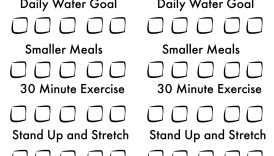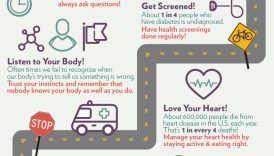From Surviving to Thriving: The Journey to a Vigorous Healthy Life

Understanding the Concept of Thriving Health
Thriving health goes beyond merely existing in a state of well-being; it embodies a vibrant and flourishing lifestyle. It incorporates physical, mental, and emotional wellness, all intricately connected to create a holistic sense of vitality. Imagine not just waking up each morning but jumping out of bed, energized and excited to start the day. Thriving health allows individuals to actively engage with their lives, pursue passions, and experience joy in everyday activities. To illustrate, consider the difference between two individuals: one who drags through workdays fueled by caffeine and stress, and another who embraces a balanced life, enjoying nutritious meals and regular movement. The latter is not just surviving but thriving, cultivating a deep sense of fulfillment.
- From Surviving to Thriving: The Journey to a Vigorous Healthy Life
- Understanding the Concept of Thriving Health
- Importance of Transitioning from Surviving to Thriving
- Key Factors for a Vigorous Healthy Life
- Nutrition and Diet
- Regular Exercise Routine
- Mental Well-being
- Practicing Mindfulness
- Importance of Emotional Intelligence
- Building Resilience
- Managing Stress Effectively
- Cultivating Positive Relationships
- Quality Sleep
- Creating a Sleep-Friendly Environment
- Establishing a Bedtime Routine
- Physical Health Check
- Regular Health Screenings
- Importance of Preventive Healthcare Measures
Importance of Transitioning from Surviving to Thriving
Transitioning from merely surviving to truly thriving is crucial for achieving a high quality of life. Many people operate on autopilot, focusing solely on day-to-day responsibilities without considering their overall well-being. This survival mode can lead to chronic stress and burnout. Key benefits of shifting to a thriving mindset include:
- Enhanced Energy Levels: Individuals often report feeling more energetic and motivated.
- Improved Mental Clarity: A thriving state allows for sharper focus and creativity.
- Better Relationships: When one is thriving, it fosters deeper connections and empathy towards others.
To embark on this transition, it’s essential to take small, actionable steps, recognizing that each incremental change contributes to a more vibrant life. Embrace the journey, and look forward to a future where health is not just about endurance but genuine joy and fulfillment.
Key Factors for a Vigorous Healthy Life
Nutrition and Diet
Building a foundation for vigorous health starts with nutrition and diet. What you eat significantly impacts your overall well-being, shaping your energy levels, mood, and even your ability to recover from illness. Rather than viewing dietary changes as a restrictive chore, think of them as an opportunity to explore delicious and nourishing food options. For instance, consider incorporating more whole foods into your diet, such as:
- Fruits and Vegetables: Aim for a variety of colors to ensure you receive a broad spectrum of nutrients.
- Whole Grains: Opt for brown rice, quinoa, or oats that provide sustained energy.
- Lean Proteins: Include chicken, fish, legumes, or tofu for muscle repair and growth.
These foods not only fuel the body but also enhance mental clarity and emotional resilience. Personal experiences showcase that people often feel revitalized when they switch from processed foods to a diet rich in nutrients.
Regular Exercise Routine
Another pillar of a vibrant life is a regular exercise routine. The benefits of physical activity are extensive and can transform your outlook on life. Whether it’s a brisk walk, yoga, or high-intensity workouts, finding what resonates with you is key. Here are a few recommendations to build an effective routine:
- Start Small: Aim for at least 30 minutes of moderate exercise most days of the week.
- Mix It Up: Combine cardiovascular, strength training, and flexibility exercises for a balanced approach.
- Find a Buddy: Working out with a partner can enhance motivation and make exercise more enjoyable.
As someone who started with just short walks in the evening and gradually moved to running, the journey reflects how small steps can lead to significant changes. Embracing nutrition and regular exercise creates the groundwork for vibrant health, making every day a new opportunity to thrive.
Mental Well-being
Practicing Mindfulness
As we continue the journey toward vibrant health, mental well-being emerges as an essential aspect. Practicing mindfulness can be a transformative tool in this area, enabling individuals to enhance their awareness and presence in everyday life. Mindfulness involves paying attention to the present moment without judgment, which helps to reduce stress and anxiety. For example, taking just ten minutes a day to focus on your breath or engage in a guided meditation can create a sense of calm and clarity. Some of the benefits of mindfulness include:
- Reduced Stress: Mindfulness techniques can lower cortisol levels, helping you respond to challenges more constructively.
- Improved Focus: Regular practice enhances concentration and productivity.
- Greater Emotional Regulation: Mindfulness fosters awareness of emotions, allowing for better management of responses.
Many find that integrating mindfulness into their daily routines—like mindfully enjoying meals or taking mindful walks—can make a monumental difference in their mental clarity and well-being.
Importance of Emotional Intelligence
Equally significant is the development of emotional intelligence (EI), which is the ability to understand, use, and manage your emotions effectively. Higher emotional intelligence not only enriches personal relationships but also enhances workplace dynamics and overall happiness. Key components of emotional intelligence include:
- Self-Awareness: Recognizing your emotions and their impact on your behavior.
- Empathy: Understanding the feelings of others and responding appropriately.
- Social Skills: Building relationships and effectively communicating with others.
Improving emotional intelligence can foster deeper connections and help navigate the complexities of interpersonal relationships. Someone once shared how developing EI changed their approach to conflict resolution at work—by understanding their emotions and others’ perspectives, they became more effective and compassionate. By practicing mindfulness and developing emotional intelligence, individuals lay a strong foundation for enhanced mental well-being, which plays a crucial role in thriving health.
Building Resilience
Managing Stress Effectively
As we delve deeper into nurturing mental well-being, building resilience is an essential component for thriving health. Resilience equips individuals with the ability to bounce back from adversity, navigate challenges effectively, and maintain a positive outlook. One critical skill in fostering resilience is managing stress effectively. Consider implementing the following strategies to keep stress in check:
- Identify Stressors: Take time to pinpoint what specifically triggers your stress. Knowledge is power!
- Healthy Coping Mechanisms: Replace unhealthy habits (like excessive screen time or junk food) with positive ones—such as exercising, journaling, or practicing relaxation techniques.
- Time Management: Prioritizing tasks can alleviate feelings of being overwhelmed. Tools like to-do lists or planners can be incredibly handy.
For instance, a friend of mine found that by dedicating a few minutes each morning to plan her day, she felt more in control and less stressed throughout the week.
Cultivating Positive Relationships
Equally vital to building resilience is cultivating positive relationships. The connections we share with friends, family, and colleagues significantly influence our ability to cope with challenges. Surrounding oneself with supportive individuals creates a buffer against stress and enhances emotional strength. To nurture positive relationships, consider these tips:
- Communicate Openly: Sharing thoughts and feelings can foster mutual understanding and support.
- Engage in Active Listening: Being present and genuinely listening can strengthen bonds and build trust.
- Seek Community: Participate in groups or activities that align with your interests to meet like-minded individuals.
I remember how joining a local book club not only enriched my social life but also provided a fantastic support network. The sense of belonging and shared passion helped us navigate tough times together. Ultimately, by effectively managing stress and cultivating positive relationships, individuals can build resilience, empowering them to face life’s ups and downs with confidence and grace.
Quality Sleep
Creating a Sleep-Friendly Environment
Continuing on our journey toward a vigorous and thriving life, we come to an often overlooked yet crucial component: quality sleep. The importance of a restorative night’s sleep cannot be overstated; it rejuvenates the body, enhances cognitive function, and supports emotional well-being. One of the first steps to ensuring quality sleep is to create a sleep-friendly environment. Here are some tips for optimizing your sleep setting:
- Temperature Control: Keep the room cool, around 60-67°F (15-19°C), as cooler temperatures promote better sleep.
- Light Management: Dimming the lights in the evening and using blackout curtains can help signal your body that it’s time to wind down.
- Soundproofing: Consider earplugs or a white noise machine if external sounds disrupt your sleep.
I once transformed my bedroom by decluttering and adding soft lighting, and the improvement in my sleep quality was remarkable. A harmonious environment can make falling asleep easier and more enjoyable.
Establishing a Bedtime Routine
In addition to a conducive sleep environment, establishing a bedtime routine is essential for signaling to your body that it’s time to relax. A consistent routine helps train your internal clock and can significantly improve sleep quality. Consider implementing these practices:
- Wind Down Activities: Engage in calming activities before bed, such as reading, light stretching, or meditation.
- Set a Consistent Schedule: Try to go to bed and wake up at the same time every day, even on weekends, to regulate your body’s internal clock.
- Limit Screen Time: Reduce exposure to screens at least an hour before bedtime, as blue light can interfere with melatonin production.
For example, I started a digital detox about an hour before bed, switching from screens to reading a book, and found that my sleep improved dramatically. By prioritizing a sleep-friendly environment and establishing a regular bedtime routine, individuals can enhance the quality of their sleep, leading to better health and increased resilience in their daily lives.
Physical Health Check
Regular Health Screenings
As we round off our discussion on building a vigorous healthy life, we delve into the essential aspect of physical health checks. Regular health screenings are critical for early detection and prevention of potential health issues, allowing individuals to stay vigilant about their well-being. Consider these essential screenings based on age and risk factors:
- Blood Pressure Checks: Aim for at least once every two years, or as recommended by your doctor.
- Cholesterol Levels: Starting at age 20, individuals should discuss testing frequency with their healthcare provider.
- Screening for Diabetes: Generally recommended every three years for adults starting at age 45 or earlier for those with risk factors.
I recall how a routine health check revealed elevated cholesterol levels that I was unaware of. With lifestyle changes and support, I was able to bring those numbers back to a healthy range.
Importance of Preventive Healthcare Measures
In addition to regular screenings, embracing preventive healthcare measures is crucial in maintaining overall health. These measures empower individuals to take proactive steps rather than reactive ones regarding their health. Here are some preventive strategies to consider:
- Vaccinations: Staying up-to-date with vaccinations can prevent various diseases and infections.
- Healthy Lifestyle Choices: Eating a balanced diet, exercising regularly, and managing stress can significantly reduce the risk of chronic illnesses.
- Regular Check-ups: Annual visits to your healthcare provider can help monitor your health and establish personalized care plans.
Building a preventive mindset can make a remarkable difference in long-term health outcomes. Personally, after adopting a comprehensive approach to preventive care, I found myself more energized and less prone to illnesses. By prioritizing regular health screenings and preventive measures, individuals can set the stage for a longer, healthier, and more vibrant life, completing the cycle of thriving health.




